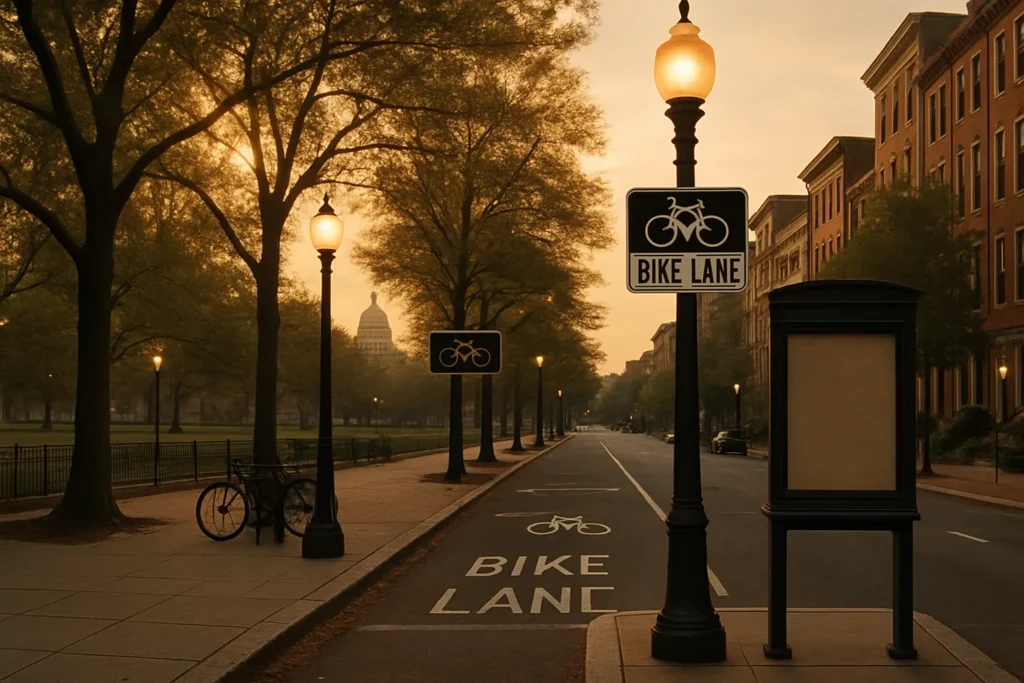A Life Devoted to Service, Cut Tragically Short
Eric Tarpinian-Jachym arrived in Washington, D.C. with a dream shared by thousands of ambitious young Americans: to grow, to serve, and to be a part of something larger than himself. As a rising senior at the University of Massachusetts Amherst majoring in finance and political science, Eric was already blazing his own path. This summer, he was serving as a Congressional intern in the office of Rep. Ron Estes (R-Kan.) — the kind of opportunity that launches careers built on compassion and civic engagement. On June 30, Eric’s life was cut short in a senseless act of gun violence near the Mount Vernon Square Metro station, mere blocks from the Capitol itself.
Friends like Phillip Peterson, haunted by the wish of more time with Eric, remember him as “easy-going” and deeply caring. “He was so genuine. To see something like this happen to him — it makes you feel like nothing is really sacred,” Peterson told local reporters. Law enforcement says Eric was not the intended target of the attack; he simply found himself in the wrong place at a lethal moment, the victim of bullets meant for others in an eruption of violence between rival groups. Two others — a woman and a 16-year-old boy — were wounded, but are expected to survive. The Metropolitan Police Department is offering a $25,000 reward for information leading to the arrest and conviction of those responsible for this horrific event.
Rep. Richard Neal, who represents Western Massachusetts, captured the heartbreak of so many: “Eric’s commitment to community, to learning, to growth, and to the ideals that make American democracy vibrant, was extraordinary. We must do better.”
Deadly Violence and the New Normal
Monday night’s shooting was not an isolated incident — far from it. According to Metropolitan Police Department statistics, D.C. has seen over 85 homicides so far in 2025, a grim testament to the persistent scourge of urban gun violence. To many in the city and around the nation, these numbers no longer shock; they simply exhaust.
What is a city’s obligation to those who come to it with hope in their hearts? What does it mean for democracy’s future when those who represent civic idealism — congressional interns, volunteers, public servants — must navigate such danger on their path to service? And why has this crisis become the status quo?
Harvard urban studies scholar Dr. Marcia Smith notes, “Municipal safety is not just about policing, but about a robust social contract: investments in mental health, opportunities for youth, effective anti-poverty programs, and smarter gun control policies. Cities must treat violence as a public health emergency, not just a law enforcement problem.”
Beyond that, progressive voices have long warned of the limitations in conservative criminal justice approaches — reactive, punitive, and often blind to root causes. Decades of “tough-on-crime” rhetoric have swelled prison populations but left underlying structural inequalities untouched. In this year alone, Congress quietly tabled several bills that would have funded anti-violence programs and mental health counselors in D.C. neighborhoods, stalled along party lines as conservatives argued for stricter policing and harsher penalties.
“We have tried doubling down on police, but without a parallel investment in communities, the cycle repeats,” Dr. Smith emphasizes. “We owe our young people a city where policy solutions go beyond punishment.”
A Debate Renewed — Who Gets to Be Safe?
For every Eric Tarpinian-Jachym whose name makes national headlines, there are dozens more whose stories remain unremarked, whose families grieve quietly, denied even the dignity of public recognition. Those who live and work in D.C., especially young people of color and low-income residents, bear the brunt of Washington’s violence epidemic daily. Eric’s death is a powerful reminder that safety is not equitably distributed in the capital of the free world.
A closer look reveals generations-old patterns: Gunfire reigns in neighborhoods with the fewest resources, while lawmakers and lobbyists retreat behind security details. True reform, experts agree, demands more than sentiment — it requires a blend of evidence-based policing, targeted investments in housing and education, universal background checks, and meaningful gun reform. According to a recent Pew Research study, Americans across the political spectrum consistently support “red flag” laws and expanded background checks — reforms that face stubborn resistance from powerful gun lobbies and conservative leadership.
Political will remains the missing ingredient. National tragedies prompt calls for change, only to fade with the next news cycle or campaign season. What will it take to shift our priorities? What will it take to honor the ambitions and sacrifice of young people like Eric with more than thoughts and prayers?
Phillip Peterson, Eric’s grieving friend, offers a simple imperative: care deeper, fight harder, and never stop asking for a better world.
Remembrance must inspire action — not just for Eric Tarpinian-Jachym, but for the thousands who walk in his footsteps each year, hopeful and unprotected, believing in the possibility of a nation that lives up to its ideals.

